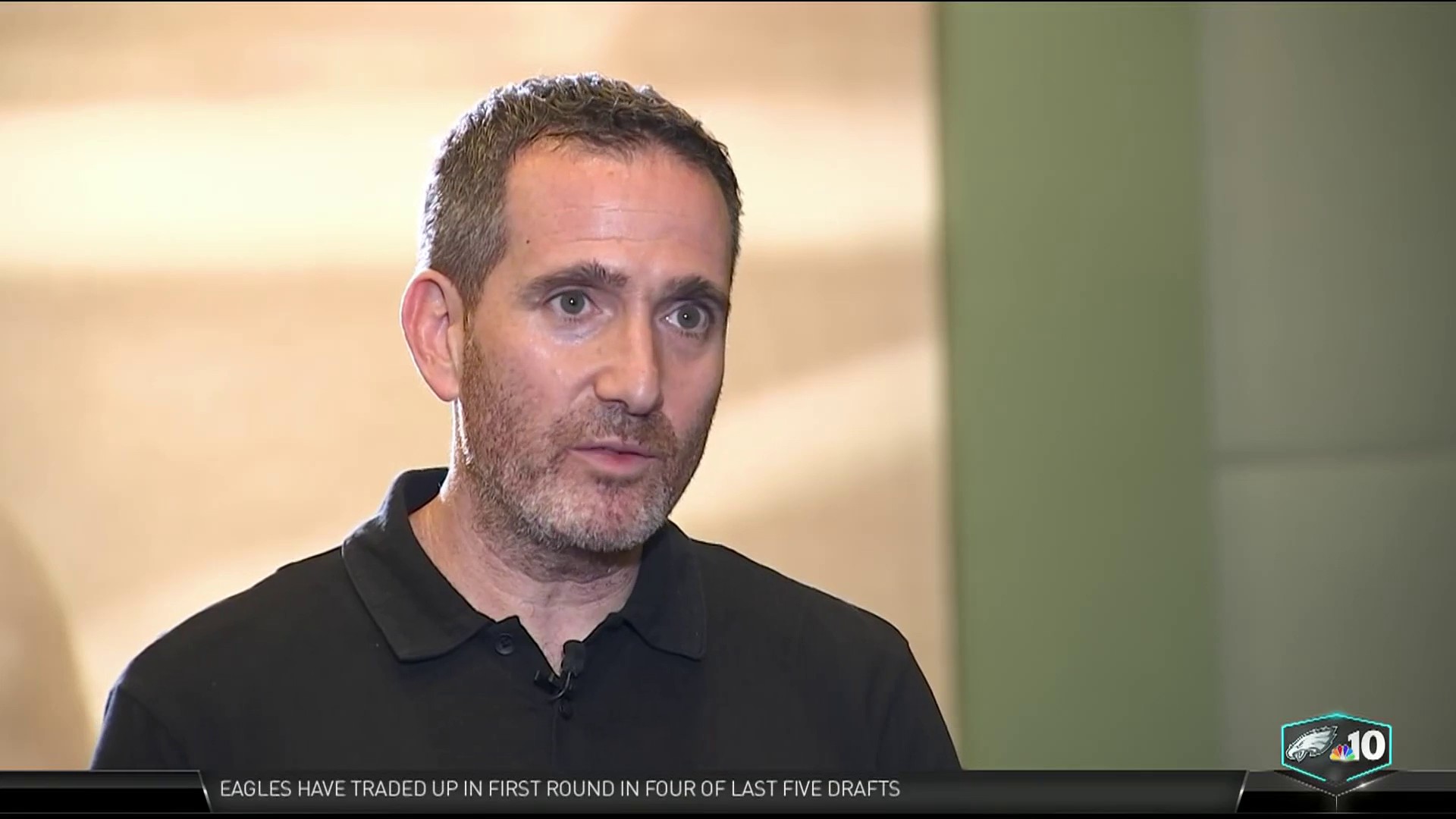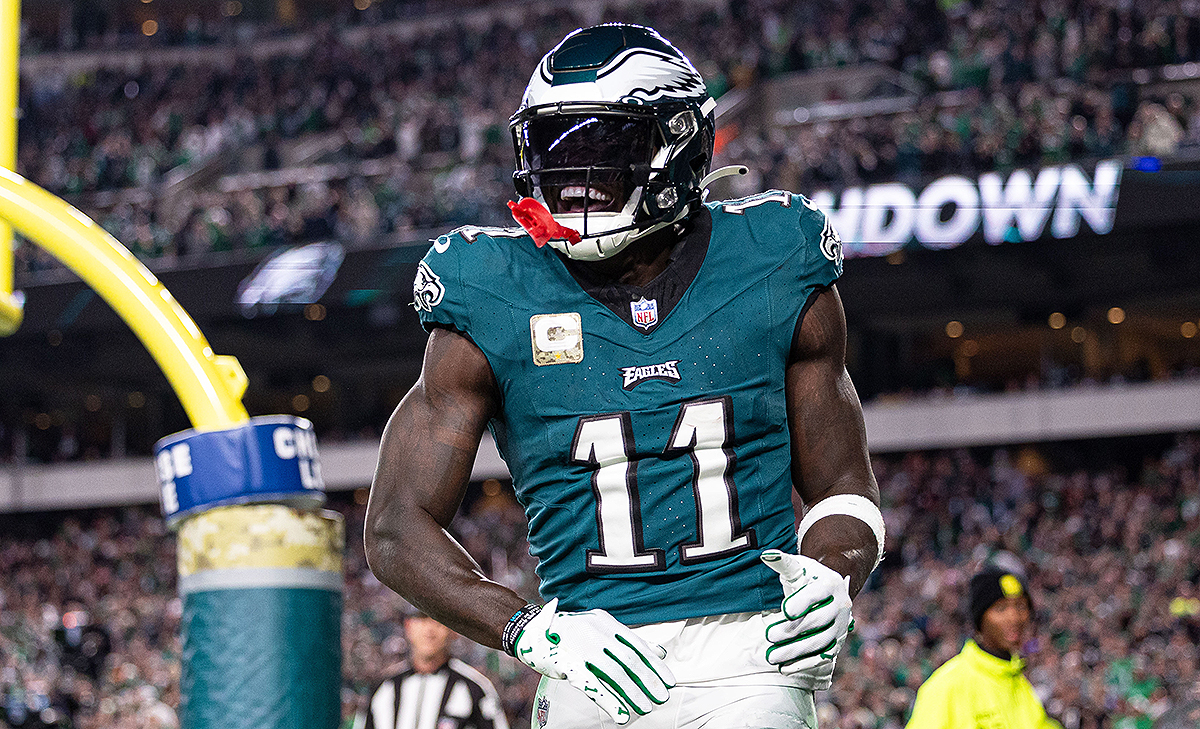If the best-case scenario unfolds this season, the Eagles will have put themselves in another tough position.
This offseason, the Eagles have clearly prioritized signing players to short-term deals that might help the team immediately, allow flexibility and won't impact the organization's goal of building through the draft.
But what happens if all these players work out?
What happens if Alshon Jeffery, Timmy Jernigan and Chance Warmack all have career years?
Well, then the Eagles will have to scramble to pay them. And that won't be easy, no matter the cap situation at the time.
Sure, that would be a pretty good problem to have and maybe this is just a glass-half-empty mentality. After all, good players earn big contracts and it's up to the teams to decide how much they're worth. But if those players all come out and have big seasons for the Birds in 2017, they're going to require top dollar and the value in buying low won't be there anymore.
Philadelphia Eagles
Complete coverage of the Philadelphia Eagles and their NFL rivals from NBC Sports Philadelphia.
Eagles vice president of football operations Howie Roseman has been praised for bringing in these players on short-term deals, and perhaps rightfully so. Ultimately, the team wants to build a winner through the draft and these moves won't affect that. And getting players on one-year, prove-it deals should guarantee they get the most out of them in 2017. But Roseman is also someone who understands how value works and while there's value in these contracts for this season, there's obviously not value beyond.
This year, excluding futures deals, the Eagles have either kept or brought in 10 players. Of them, six either signed a one-year deal or have one year left on their deals: Jeffery, Warmack, Jernigan, Trey Burton, Najee Goode and Jaylen Watkins. Two players were brought in on two-year deals: Nick Foles and Chris Long. And two are on three-year deals: Torrey Smith and Stefen Wisniewski.
The Eagles will have a head start in re-signing these guys on one-year deals and that shouldn't be overlooked. It would be hard to overlook it based on how often Roseman has trumpeted that line of thinking; and it's a valid one. For the players with one year left on their contracts, the team will have exclusive negotiating rights until next March, when the players become restricted free agents. That ought to help; if nothing else, it can't hurt.
In 2018, the Eagles already have nearly $173 million in cap space with their top 51 contracts, according to OverTheCap. That number still includes players like Jason Peters, Jason Kelce, Brent Celek, Torrey Smith and Mychal Kendricks, so it will drop. The NFL's salary cap will also once again rise from $167 million this season. But with little carryover from this year's cap (they have $1,652,188 in 2017 cap space as of Thursday morning), the Eagles' situation in 2018 won't be much better.
Looking at the receivers, Jeffery clearly didn't get the type of big pay day he was looking for this offseason, but a good year in Philly could change that. Jeffery will want a long-term deal, but the Eagles' fallback plan will be to franchise-tag him, which will come with a hefty price. The 2017 franchise tag value for a wideout was $15.6 million. That's pricey, but if Jeffery ends up having a dynamic impact, they won't have much of a choice. Jeffery is likely the guy the Eagles probably wished they could have signed to a long-term deal instead of a one-year.
Meanwhile, the Eagles have the best of both worlds with the Smith contract. They have his rights for three years, but with minimal guaranteed money. The second and third years of his deals are team option years. If he produces, they keep him. If not, they cut him free.
The next big piece would be Jernigan, who comes to the Eagles after a trade with one year remaining on his rookie deal. In 2017, he'll be really inexpensive, with a salary just over $1 million and a cap hit just under $1.4 million. Jernigan is going to want to get paid in 2018. This offseason, the Ravens prioritized re-signing Brandon Williams, who got a five-year contract worth $52.5 million and $24.5 million guaranteed, so it wouldn't have made sense to offer up an extension for Jernigan.
Even if the Eagles are able to afford Jernigan next offseason, they'll have to ask themselves how much they want to invest along the defensive line. That's probably part of the reason they allowed Bennie Logan to walk this year. Between Fletcher Cox ($17.9M), Vinny Curry ($11M) and Brandon Graham ($7.5M) the Eagles have $36.4 million in cap space tied up between three players along the defensive line in 2018. Would they prioritize paying another one?
The final one-year player brought in this offseason was Warmack, who is in a different situation than Jeffery and Jernigan. While Jeffery and Jernigan will definitely get a shot to earn their next contract, there's a chance Warmack could spend his most of his 2017 sitting on the bench, waiting for an opportunity. But what happens if he gets it, starts, and plays well? With Brandon Brooks already under contract for a big number, would the Eagles pay a lot to another guard?
Then there's Burton, whom the Eagles tried to sign to a long-term deal last year but couldn't. The Eagles clearly think a lot of Burton, indicated by their putting a second-round tender on him this offseason. The Celek contract just doesn't make sense, so they can move on and save some money there. Burton won't break the bank, but he's another player the Eagles have to worry about locking up. Meanwhile, Jordan Matthews, Beau Allen, Nigel Bradham and Caleb Sturgis, among others, are all entering the final years of their contracts. The team could look very different in 2018.
The Eagles offered themselves flexibility this offseason with a bunch of short-term deals -- and they weren't alone. But in gaining flexibility this year, they might have tied their hands for the future. It's a good problem to have, but it still might be a problem.
At least it's a problem for the future.



